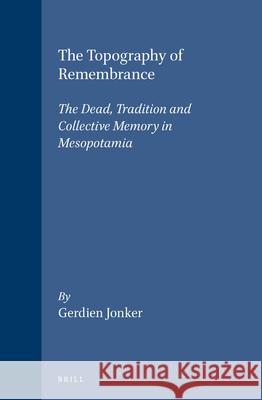The Topography of Remembrance: The Dead, Tradition and Collective Memory in Mesopotamia » książka
The Topography of Remembrance: The Dead, Tradition and Collective Memory in Mesopotamia
ISBN-13: 9789004101623 / Angielski / Twarda / 1995 / 302 str.
The Topography of Remembrance: The Dead, Tradition and Collective Memory in Mesopotamia
ISBN-13: 9789004101623 / Angielski / Twarda / 1995 / 302 str.
(netto: 709,89 VAT: 5%)
Najniższa cena z 30 dni: 745,38 zł
ok. 30 dni roboczych
Bez gwarancji dostawy przed świętami
Darmowa dostawa!
The Topography of Remembrance deals with different forms of remembrance and collective memory in Mesopotamia, discussing both its public (national) and private (family) aspects. The Introduction offers a history of modern, European memory in comparison with the Mesopotamian mode. The research adds to the recent discussion on collective memory. The Mesopotamians found tools for the construction and passing on of common remembrance in liturgical repetition, in the preservation of buildings and monuments, and in communication channels. To describe these processes the author deals with different texts written between 2300-300 BC, which transport memory from a historical, administrational or religious perspective. According to this study, the need to remember was prompted by the search for identity, a dynamic process in which forgetting played an essential part. The description of this process is also relevant to modern society. It offers an important contribution to the discussion of acculturation and identity.











